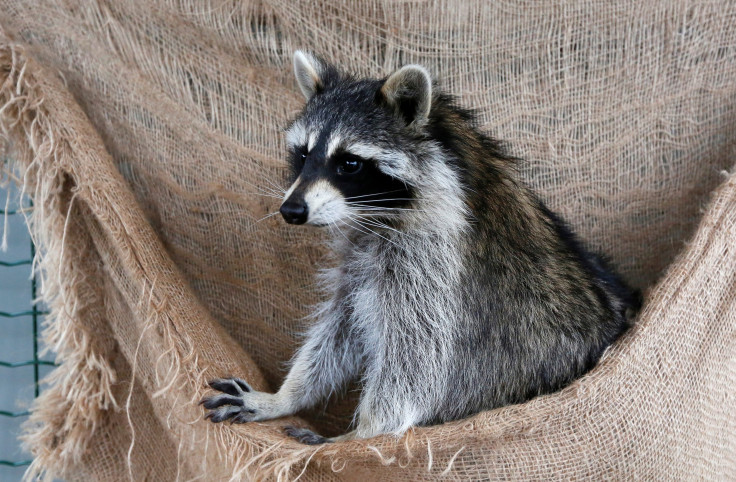Viral 'Zombie' Outbreak Kills Dozens Of Raccoons In Central Park

More than two dozen raccoons have died in a viral outbreak of an infectious disease that makes them act like "zombies" since June 24 in Central Park, New York. The most recent raccoon carcass was found Saturday at East 106th Street.
Officials with the city health and parks departments revealed that of the 26 raccoons found dead inside the park, two tested positive for canine distemper virus (CDV), which can spread to unvaccinated dogs, while the other 24 are believed to be infected by distemper.
Dr. Sally Slavinski, an assistant director at the Health Department, said, “They looked like they were circulating, wandering, having spasms,” adding, “Some of the raccoons had some sort of nasal discharge,” Fox News reported.
Raccoons with distemper show symptoms including unusual tameness, disorientation, appearing confused, lack of coordination and aggressive behavior and the park staff said these symptoms were witnessed even in living raccoons.
Authorities said none of the raccoons tested positive for rabies so far, however, dog owners in Central Park were alarmed as news about the outbreak spread.
“Now I’m freaked out. Holy moly!” said Bob Cucurullo, a dog owner. “He (his dog) sees a raccoon once a week, and he goes nuts after it. Now I’ll have to be careful where I let him go.”
Most dogs in the city are vaccinated for distemper as it is required if dogs are going to a boarding or grooming facility. The infection spreads when animals come in contact with infected urine, feces, saliva or respiratory discharge. Skunks, coyotes, foxes, ferrets and exotic large cats at the Central Park Zoo are under threat from the disease.
“It is important to note that this causes no threat to humans as it cannot be transferred from animals to humans,” Parks Department said in a statement, AM New York reported.
In May, more than 100 dogs had to be put down due to the outbreak of the canine distemper virus in Knysna, South Africa.
“Since the outbreak more people have come with their animals which is a positive thing,” the Knysna Animal Welfare Society (KAWS) said. “In the month of May we did 106 vaccinations, and I know that the private vets also had loads of bookings.”
“The disease is preventable if you make sure that your animal gets his or her full vaccinations, puppies need three vaccinations on six, nine and 12 weeks and then annually,” KAWS spokesperson Retha Havenga said.
“There is no specific vaccination for distemper,” Havenga said. “People get puppies and take them from one area to another; that is how it is spread from one dog to another," local daily Independent Online reported.
“People often waited too long to bring their dogs in for help after symptoms had begun to show,” he said. ‘‘Sometimes the dog would not eat, and the owner would leave the animal for a couple of days hoping the situation would improve. As the disease progresses, the dog could suffer from seizures and become more sick. There is nothing we can do to treat the dogs. We can help with the basic symptoms but we have to put the dogs down humanely."
© Copyright IBTimes 2025. All rights reserved.





















